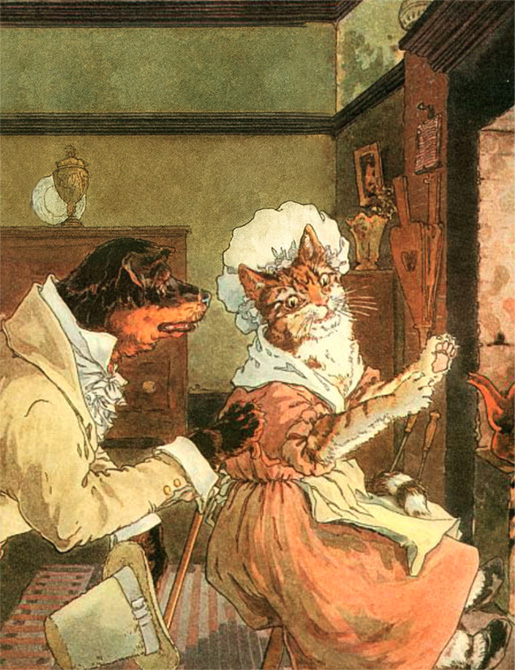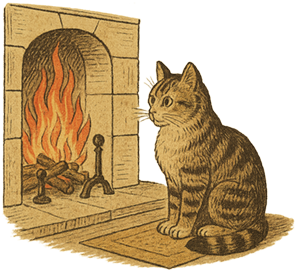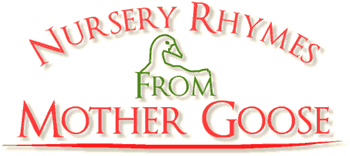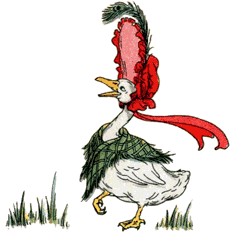Pussy-Cat Sits by the Fire
Pussy-Cat sits by the fire;
How can she be fair?
In walks the little dog;
Says: “Pussy, are you there?
How do you do, Mistress Pussy?
Mistress Pussy, how d’ye do?”
“I thank you kindly, little dog,
I fare as well as you!”

Origins
The rhyme was written down in the 1840s by James Orchard Halliwell in his Nursery Rhymes of England. Halliwell was the guy who gathered up all sorts of odd verses — some famous, some that would have been forgotten without him. This one probably circulated in oral tradition before it was printed, passed down in families where kids grew up with cats under the hearth and dogs wandering in and out.
Meaning
If you look for deep symbolism here, you won’t really find it. What it does show is a little lesson in manners, wrapped in animal talk:
-
The dog greets the cat like a proper gentleman.
-
The cat replies politely, thanking him and returning the greeting.
-
The whole exchange mirrors the kind of formal “how do you do” chatter adults used in the 18th and 19th centuries.
For kids, it’s a funny idea — a dog and a cat behaving more politely than many people do.
 Animal rhymes stuck around because they were relatable. Every house had cats and dogs, and giving them human voices made them even more fun to imagine. Here, instead of bickering like real pets might, they’re teaching a quiet lesson: good manners never hurt anyone.
Animal rhymes stuck around because they were relatable. Every house had cats and dogs, and giving them human voices made them even more fun to imagine. Here, instead of bickering like real pets might, they’re teaching a quiet lesson: good manners never hurt anyone.
It’s not as famous as Pussy Cat, Pussy Cat, Where Have You Been? but it has that same domestic coziness. Short, gentle, and easy to recite — that’s probably why it survived long enough to make it into Halliwell’s collection.

